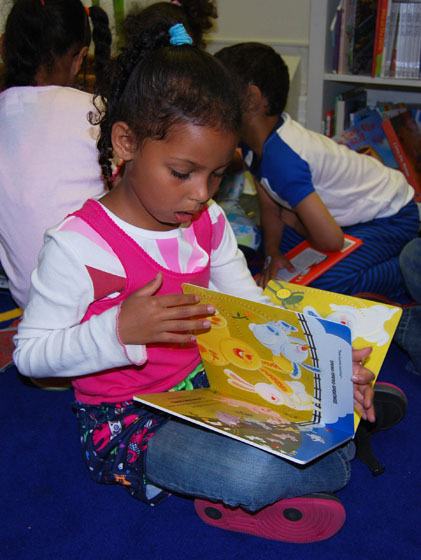Every day we meet children dealing with difficult situations. Some of them are now discovering love and security for the first time. Many are still looking for tenderness and peace. They have been traumatized, abused, neglected, or worse. They've been living in a terrifying world.
Recently we embarked on a team soul-searching journey to learn everything we can about the children we serve and the impact of our work. We want to know what pajamas really mean to them, and the symbolism of pajamas and a book for their bedtime. We've been speaking with staff all over the country who work tirelessly to provide the necessities of food, clothing, and a safe, loving home for thousands of infants, toddlers and teens.
We are getting a crystal clear understanding of the world these children live in. We're asking two key questions -- and the answers are providing insights that are more profound than we imagined.
1. What are the feelings the child is dealing with when you meet him or her?
Caregivers tell us most of the children perceive that society has shunned them; they feel like they are outcasts among other children. They don't trust anyone or anything when they are brought to a new or temporary place to live. They won't accept anything -- food, clothing, or even a kind word. They don't trust, therefore, they won't consent to a foster home, the ultimate goal of an agency caring for them temporarily.
"Their deepest belief is 'no one wants me,'" one of the staff told me. "All they can think about is, 'what will happen to me next?'"
One caregiver told me the children living in his group home repeatedly say to his staff, "You do this for me because you HAVE to, it's your job, and you get paid to do it."
Yesterday if you asked me what the single most common emotion that a child taken to a group home is feeling, I would have said either fear, loneliness or anger. I would have been wrong. I found out it is pain. The severe, gut-wrenching, primal, burning pain from being taken away from the only family the child knows, the only home he or she has ever had, no matter what it was like, is excruciating. Heartbreak is not a romantic term. Heartbreak plunges these children into depths of anguish that we cannot imagine.
Next it was time for our 2nd question to the caregivers.
2. How are we helping with pajamas and books for the children?
Their answers are jolting. Yes, pajamas and books provide warmth, comfort, safety, security, peaceful dreams, reading practice and story time, but we know there's more to it than that. We believe that our gifts carry love and tenderness to every child, delivering a message that someone cares, that they're not forgotten. But most of what we're hearing goes much deeper than that.
"Initially it's surprising to many of these children to find out they can keep the new pajamas without having to do anything in return that they don't want to do to keep the gift," a caregiver told us.
That realization was mind-blowing for me. She didn't have to explain further, I immediately got her drift and my stomach turned.
"The children don't trust anyone. First and foremost, we have to get them to trust again," she continued.
Others told me,
"The pajamas and books make them feel 'normal,' like a regular kid, like they are included in a normal part of life. Most of them haven't had what they'd call 'normal' experiences."
"They need consistent moments of "hope" - they have little to no hope and hope is vital, the initial part of their healing process. We have to create a sense of optimism which they've been living without."
"Together we're showing them that there's a community of positive people who care for them, not just the negative group they've been living with from morning until night, every day."
"A kind gesture from a stranger, someone who doesn't know them, nor expects anything in return from them, means more than you know. They've heard promising words all their lives and they stopped believing in them when they realized they were empty, just lies and bribes. When a stranger does something nice for them, it has a remarkable impact -- it means more than you can ever know. It says 'you're special. Wow, this person thinks I'm important.'"
"A storybook at bedtime gives them the chance to "step into another world when they need it most."
The world some of these children have been living in is sadder than we can picture. Every gesture any of us makes has an enormous impact on them. The children need us now to create another world for them to step into.

